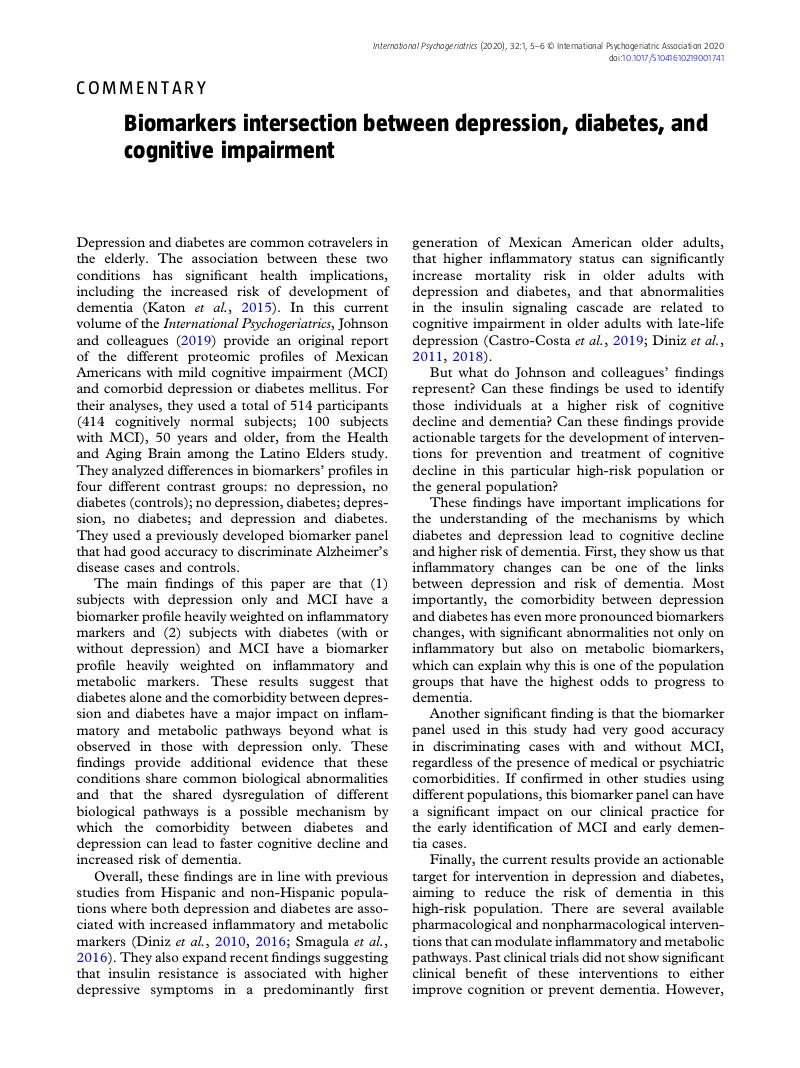Crossref Citations
This article has been cited by the following publications. This list is generated based on data provided by Crossref.
Genis-Mendoza, Alma Delia
González-Castro, Thelma Beatriz
Tovilla-Vidal, Gisselle
Juárez-Rojop, Isela Esther
Castillo-Avila, Rosa Giannina
López-Narváez, María Lilia
Tovilla-Zárate, Carlos Alfonso
Sánchez-de la Cruz, Juan Pablo
Fresán, Ana
and
Nicolini, Humberto
2022.
Increased Levels of HbA1c in Individuals with Type 2 Diabetes and Depression: A Meta-Analysis of 34 Studies with 68,398 Participants.
Biomedicines,
Vol. 10,
Issue. 8,
p.
1919.



